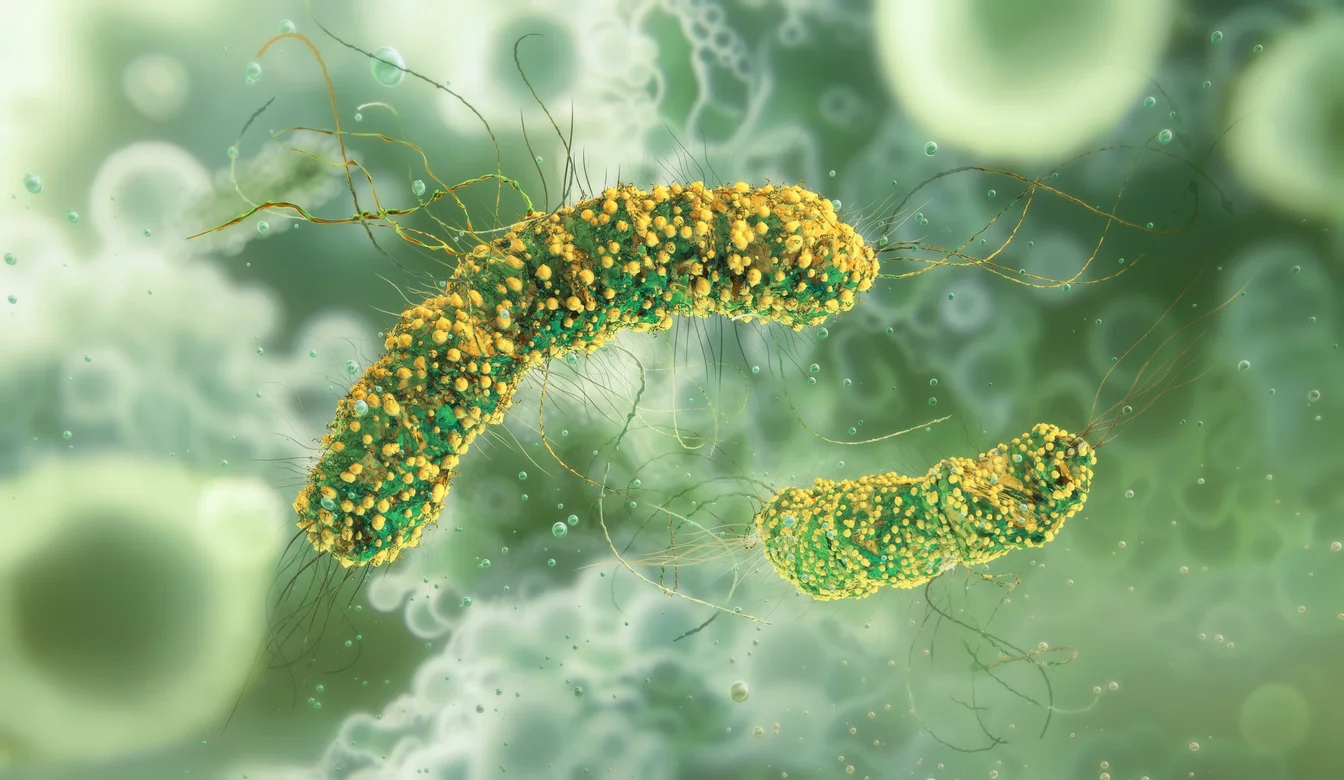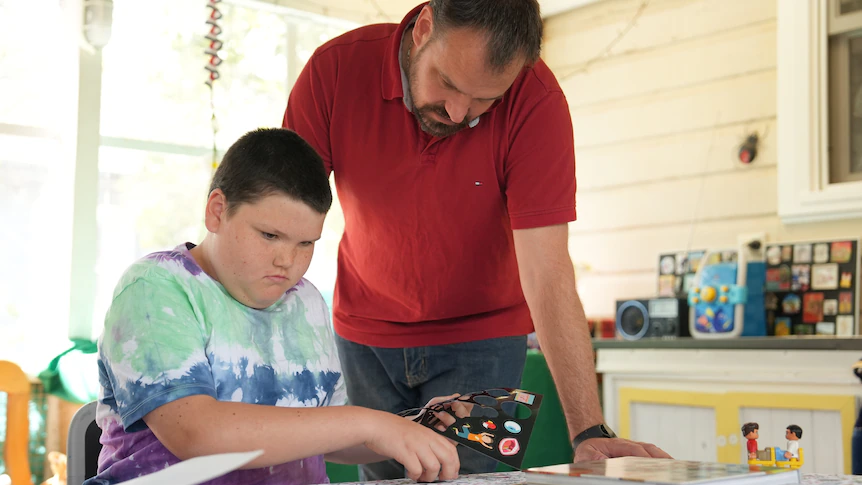Copyright The New Yorker

Sometimes what you don’t know can actually help—as when, last week, I watched Lynne Ramsay’s “Die My Love” unaware that it’s based on a novel. Throughout the movie, I had the frustrating feeling that it denied its protagonist, Grace (played by Jennifer Lawrence), a detailed inner life. Then, in this magazine, I read my colleague Jia Tolentino’s Profile of Lawrence, which opens with a reference to the novel on which the film is based, by the Argentinean writer Ariana Harwicz. That book, quoted in the piece, is a first-person narrative, intimately confessional and expressively aflame. As soon as I read the quoted phrases, I felt as if I’d caught a glimpse of a better movie lurking within the one I’d actually watched, and I suspected that the emptiness of the latter revealed a fundamental failure of adaptation. I’d call “Die My Love” misconceived if it weren’t centered on Grace’s emotional struggles in the months after she gives birth. At the start, Grace and her husband, Jackson (Robert Pattinson), arrive at their new house, a fixer-upper in his rural home town that comes with weighty baggage: it formerly belonged to his uncle Frank, who recently died by suicide. Inside the house, which is empty except for dry leaves and other debris, Jackson declares, “It’s not New York, but it’s ours,” and points out an office where Grace can do her writing. The blatant exposition is soon made even clunkier when it’s followed by Grace’s similarly expositional question to Jackson of how his uncle died—and Jackson’s extended silence in the place of any response. The effect is an utterly fake marital moment created solely to stoke the movie’s once-upon-a-time trickery. It’s just one of many silences that stifle the characters. The movie, written by Ramsay and the playwrights Enda Walsh and Alice Birch, finds Grace pregnant when the couple arrives at the old house. The baby (whose name, Harry, isn’t heard until late in the film) just suddenly appears, several scenes in. By that point, still early on, Grace’s fierce energy—pinned to the screen as if on an index card by a thrashing dance sequence in the cleaned-up kitchen—already shows signs of chaos and danger. When Harry is introduced, Grace is seen crawling in high grass near the house, a big knife in hand, which she’s still holding while coming up to the porch and admiring the infant. (Fear not.) Harry’s arrival has hardly changed Jackson’s life, which is largely centrifugal: he goes to work (it’s never made clear what he does for a living), and his job involves late hours a long drive from home—whereas Grace’s existence now revolves around the baby, and, amid these changes, her composure, perhaps even her sanity, dissolves. Grace is said to be a writer, but the film never divulges what she’s writing or has written, whether she’s been published, whether she has a career or just an ambition. What her literary passion is or whether she has any (as Tolentino notes, there are no books seen in the couple’s home) remains blank. In any case, whatever her writing may have once involved, she’s not doing it now. She’s socially isolated—it’s unclear whether the couple actually lived in New York or whether it was formerly nearby or even just a dream—with no friends of her own, and her bit of contact with Jackson’s longtime circle proves disastrous. Jackson’s mother, Pam (Sissy Spacek), is well-intentioned and compassionate but exasperates Grace with her homespun advice. Grace does get along with Jackson’s father, Harry (Nick Nolte), but he is senile and dies sometime around the baby’s birth. Motherhood is making Grace miserable. After nursing Harry, she wanders through the house with one breast exposed, dripping milk—and, entering her office, dripping black ink onto paper and then dribbling milk on top of it, making a starry-sky pattern that Ramsay emphasizes with a cut to the actual starry sky as beheld by Jackson through his telescope. A bit on the nose, even more so when he speculates about the universe and alternate ones, leading Grace to ask, “What are we doing in the different universe . . . do we fuck?” As the post-childbirth months go by, Grace gives vent to her sexual frustration, setting out to Jackson a timeline of deprivation—and insisting that he fuck her right then and there, in the front seat of the car, while the baby is strapped in the back seat. (It doesn’t go well.) She fantasizes about a motorcyclist (LaKeith Stanfield) who drives repeatedly by the house—and he may indeed be a fantasy, or at least part of their connection may be imaginary (possibly the part where she commands him to cut himself). Meanwhile, Jackson is revealed to be something less than an exemplary husband. He brings home a dog without asking; he keeps a box of condoms in his glove compartment but can’t get his story about them straight; he unsympathetically expects Grace to keep house while he’s at work; he angrily charges her with embarrassing him in front of his friends. The troubled relationship, along with the other stresses in her life—motherhood, loneliness, unfulfilled desire, artistic frustration, and maybe undiagnosed mental illness—pushes her over the edge. She talks to a Teddy bear, licks a window, sits in an open refrigerator, spits beer onto the floor. She leaves the house a mess, letting dishes and laundry pile up, shopping for nothing but instant mac and cheese. She gratuitously insults a young cashier and makes a scene at a party. She throws herself through a glass door (cutting her face and limbs, requiring a hospital stay) and demolishes a bathroom even unto its fixtures. She bashes her head against a mirror and is checked into a mental-health facility. What for is never clear: she speaks with a therapist, who elicits her account of being orphaned as a child and diagnoses her fear of abandonment. But is she given a diagnosis—of postpartum depression, say, or even psychosis? Is medication prescribed? The movie offers no clue. Instead, Ramsay emphasizes the bodily fury of Grace’s torment. It isn’t only the details of her writing life, her daily activities or inactivity, Jackson’s work, Grace’s relationships outside the household, and the medical specifics of her self-harming actions that the movie leaves out. At the party scene with Jackson’s friends, Grace shows up with her fingers bandaged—an apparent result of her violent encounter with the bathroom—whereas there’s no immediate consequence of that frantic destruction, no view of her and Jackson more calmly attending to her injuries, no sense of what they said to each other afterward. After Grace hurls herself through a glass door—less an authentic impulse than a sudden shock for viewers—she’s next seen in the hospital, with no intervening action by Jackson to stanch the bleeding, call an ambulance, bring her to the hospital on his own, watch as she’s wheeled into the emergency room, talk to a doctor. Ramsay’s view of violence is narrow, limited, and clichéd, stuck at the banal level of jump scares and wide-eyed horror, without any of the reverberant chill of chaotic aftermaths, of practicality’s brittle calm in the face of pain and danger. There’s no sense of what it’s like to contemplate what happened even as the damage to body and soul has yet to be assessed and attended to. Striving for intense physicality, Ramsay delivers mere sensationalism. On the other hand, the film’s mosaic-like intermingling of time frames is its most satisfying and accomplished feature. It may be unclear whether flashbacks, such as the couple’s turbulent wedding party and their hot and rowdy courtship, are Grace’s memories, or, indeed, whether some scenes (such as those with the biker) depict her actual deeds or simply her fantasies. Still, this free arrangement of time at least sets up a framework for subjectivity, points in the direction of a mental world that underlies the action. Whether this complex structure was developed in the script or in the editing room (the editor is Toni Froschhammer), it’s far more absorbing than the particular elements that it juxtaposes. What’s lacking throughout, with this suppression of practicalities in favor of shocks and thrills, is imagination. Ramsay drowns her story in the extraordinary and can’t be bothered with what’s dramatic in the ordinary elements of her characters’ lives. For that matter, there’s no clue to when the movie is set (cars seem recent but no one does anything with smartphones but make calls) or where (I noticed a car with a Montana license plate). There’s never a suggestion of what may be happening in the wider world or what these characters think about it. There’s hardly a word about money: Jackson shows up with a new car and, when Grace wonders whether they can afford it, he answers, “Don’t worry about it.” (She never worried about it before.) In the absence of meaningful talk or observational curiosity, the movie’s scenes cut out quickly, running just long enough to dispense their information, and just enough of it to check off a plot point or a salient trait. As an exploration of the postpartum dangers to a woman’s mental health, “Die My Love” does the subject a disservice—it leaves out the medical specifics and the forms and prospects of treatment. The movie both sensationalizes those dangers and subordinates them to a general, social-existential vision of women’s frustrations and subjugations in marriage. For the record, Ramsay declared, soon after the movie’s Cannes première, in May, that “this whole postpartum thing is just bullshit” and added, “It’s about a relationship breaking down, it’s about love breaking down, and sex breaking down after having a baby. And it’s also about a creative block.” Directors are the authority on their intentions, not their results, and the movie proves to be about far more than she meant it to be—even if it does too little with its many subjects. In the absence of substantially written characters, the actors take their place; far from interpreting or incarnating the characters of “Die My Love,” the actors are forced to simulate them. Ramsay thrusts the burden of labor to the cast—and, especially, to Lawrence, who exerts herself furiously but is given so little to work with—both in textual substance and in the continuous time on screen to develop scenes beyond their mere informational value. Her performance is deeply committed, but each scene plays like a self-contained exercise, adrift in abstraction, energized solely through her force of will. The result is an effortful performance, not because Lawrence lacks immediacy or spontaneity—on the contrary—but because the writing and direction give her little to react to. Her creative mechanism, left unengaged, spins wildly, leading to a spectacle of overheated exertion substituting for drama.



